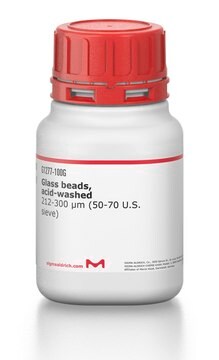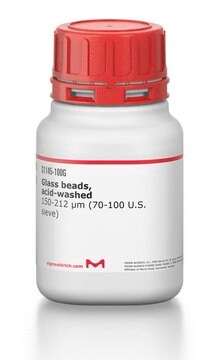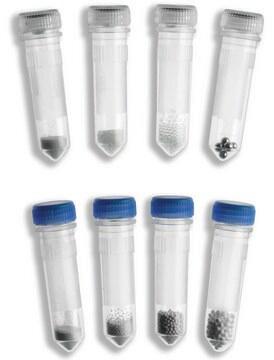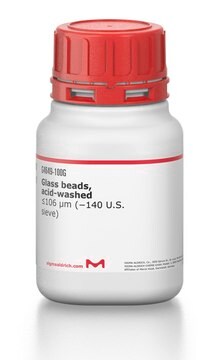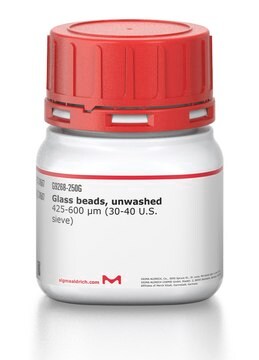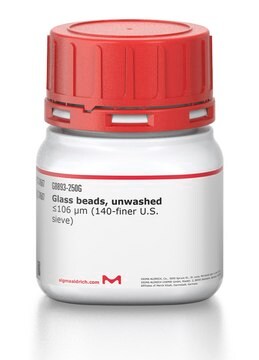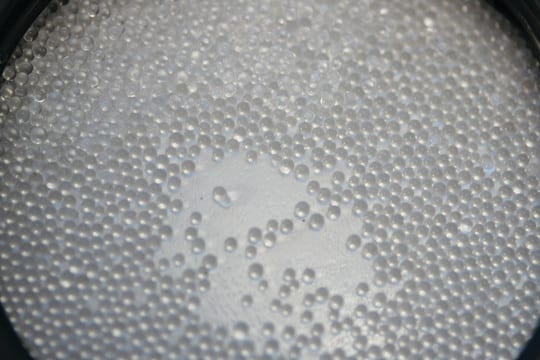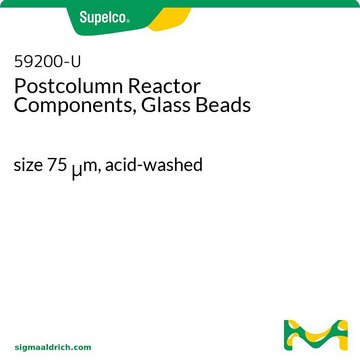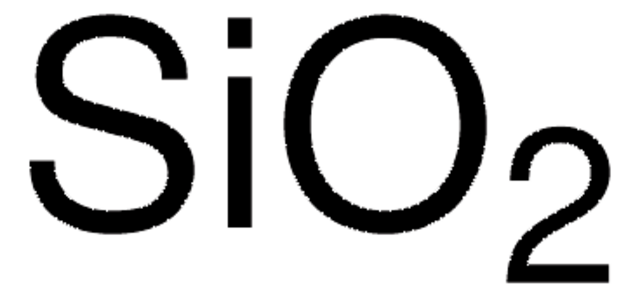G8772
Glass beads, acid-washed
425-600 μm (30-40 U.S. sieve)
Synonym(s):
Acid-Washed Beads, Glass Beads
Sign Into View Organizational & Contract Pricing
All Photos(4)
About This Item
UNSPSC Code:
41102422
NACRES:
NB.22
Recommended Products
particle size
425-600 μm (30-40 U.S. sieve)
Application
Acid-washed glass beads have been used:
- for the extraction of DNA from microalgae
- in the extraction of fatty acids and proteins from yeast cells
- to lyse glioma cell lines to determine the dihydrofolate reductase (DHFR) enzyme activity
Storage Class
11 - Combustible Solids
wgk_germany
nwg
flash_point_f
Not applicable
flash_point_c
Not applicable
ppe
Eyeshields, Gloves, type N95 (US)
Certificates of Analysis (COA)
Search for Certificates of Analysis (COA) by entering the products Lot/Batch Number. Lot and Batch Numbers can be found on a product’s label following the words ‘Lot’ or ‘Batch’.
Already Own This Product?
Find documentation for the products that you have recently purchased in the Document Library.
Customers Also Viewed
Agnieszka Anna Rawłuszko-Wieczorek et al.
Epigenetics & chromatin, 11(1), 4-4 (2018-01-27)
Protein posttranslational modifications (PTMs) occur broadly in the human proteome, and their biological outcome is often mediated indirectly by reader proteins that specifically bind to modified proteins and trigger downstream effects. Particularly, many lysine methylation sites among histone and nonhistone
Changyong Cheng et al.
Frontiers in cellular and infection microbiology, 7, 287-287 (2017-07-14)
Microbes employ the thioredoxin system to defend against oxidative stress and ensure correct disulfide bonding to maintain protein function.
Leon M Hartman et al.
Microorganisms, 8(1) (2019-12-28)
Coral bleaching linked to climate change has generated interest in the response of coral's bacterial microbiome to thermal stress. The sea anemone, Exaiptasia diaphana, is a popular coral model, but the response of its bacteria to thermal stress has been
A simple and rapid technique for the isolation of DNA from microalgae 1
Fawley M W and Fawley K P
Journal of Phycology, 40(1), 223-225 (2004)
Victor Llorenç et al.
Ocular immunology and inflammation, 26(5), 786-792 (2016-12-25)
To investigate bacillus Calmette-Guérin (BCG) infective capability and cytotoxicity in ARPE-19 cells. BCG inoculum was dispensed at a MOI 100:1 for 3 h in 90% confluent ARPE-19 cells. Infection rates at different time points were determined by colony forming units
Our team of scientists has experience in all areas of research including Life Science, Material Science, Chemical Synthesis, Chromatography, Analytical and many others.
Contact Technical Service